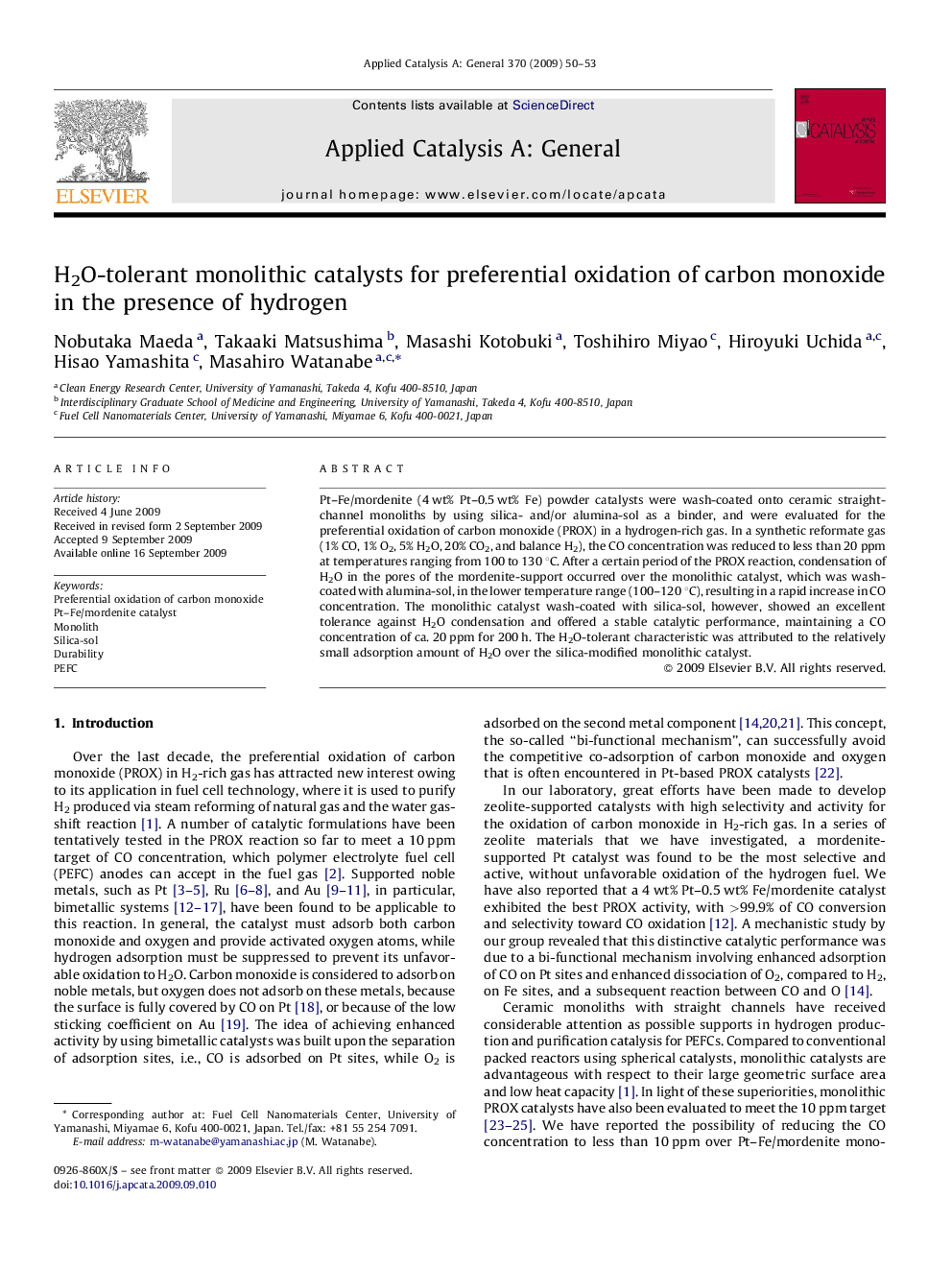| Article ID | Journal | Published Year | Pages | File Type |
|---|---|---|---|---|
| 42588 | Applied Catalysis A: General | 2009 | 4 Pages |
Pt–Fe/mordenite (4 wt% Pt–0.5 wt% Fe) powder catalysts were wash-coated onto ceramic straight-channel monoliths by using silica- and/or alumina-sol as a binder, and were evaluated for the preferential oxidation of carbon monoxide (PROX) in a hydrogen-rich gas. In a synthetic reformate gas (1% CO, 1% O2, 5% H2O, 20% CO2, and balance H2), the CO concentration was reduced to less than 20 ppm at temperatures ranging from 100 to 130 °C. After a certain period of the PROX reaction, condensation of H2O in the pores of the mordenite-support occurred over the monolithic catalyst, which was wash-coated with alumina-sol, in the lower temperature range (100–120 °C), resulting in a rapid increase in CO concentration. The monolithic catalyst wash-coated with silica-sol, however, showed an excellent tolerance against H2O condensation and offered a stable catalytic performance, maintaining a CO concentration of ca. 20 ppm for 200 h. The H2O-tolerant characteristic was attributed to the relatively small adsorption amount of H2O over the silica-modified monolithic catalyst.
Graphical abstractThe monolithic catalyst wash-coated with silica-sol showed an excellent tolerance against H2O condensation and offered a stable catalytic performance, maintaining a CO concentration of ca. 20 ppm for 200 h.Figure optionsDownload full-size imageDownload as PowerPoint slide
